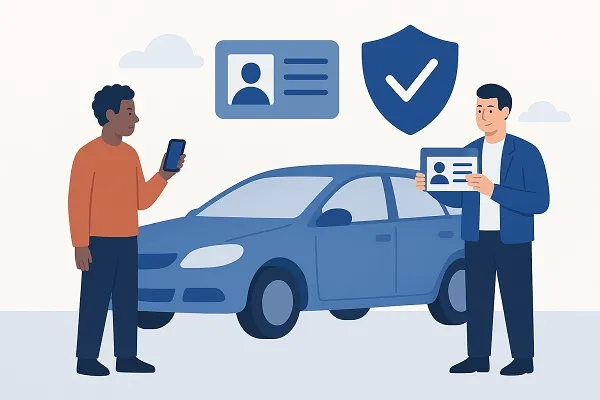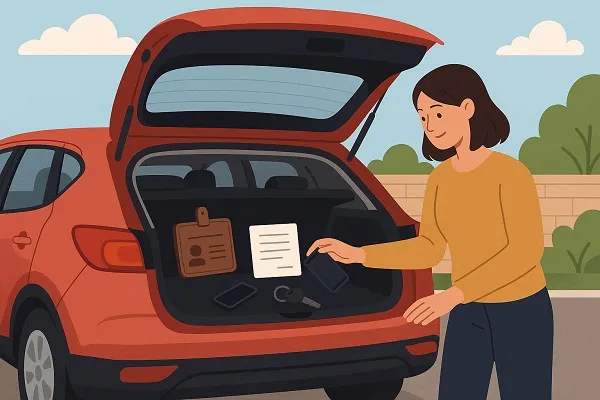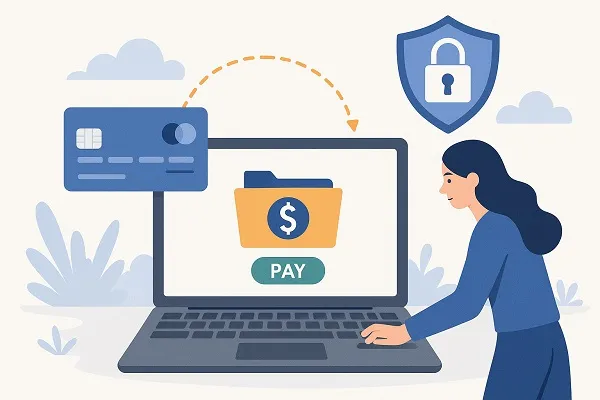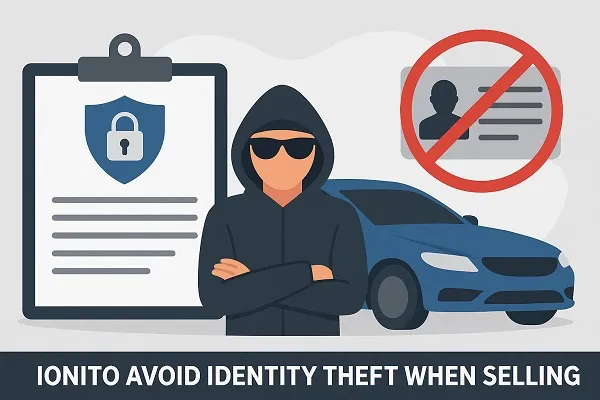Selling a car can expose you to more risks than just losing money on a bad deal. One of the biggest concerns is identity theft. When personal information is shared during the selling process, criminals can use it to commit fraud. Understanding how to avoid identity theft when selling a car can help you protect yourself while still completing a smooth, legitimate transaction.
Protect Your Personal Information
When preparing to sell your vehicle, you may be asked for documents that contain sensitive details. It’s essential to control what information you share and to whom you share it.
Limit What You Share
- Never include your home address or full name in online listings.
- Avoid posting photos that show your license plate or VIN.
- Only share personal details with verified buyers after confirming their identity.
- Do not provide copies of your driver’s license or registration unless absolutely necessary.
Use Secure Communication Channels
Stick to messaging platforms within trusted sites like AutoTrader, Craigslist, or Facebook Marketplace. Avoid moving conversations to text or email until you’ve vetted the buyer. Scammers often move conversations off-platform to avoid detection.
Safeguard Sensitive Documents
Selling a car involves paperwork, but not all documents should be freely shared. Criminals can use car titles, registrations, or bills of sale to impersonate you.
Best Practices for Handling Paperwork
- Keep original documents secure until you’re meeting the buyer in person.
- Redact personal details like your address or driver’s license number on copies.
- Only provide the title once the payment has cleared or is verified.
- Photocopy all documents for your records before handing anything over.
Verify the Buyer’s Identity

Fraudulent buyers are one of the most common sources of identity theft. Always confirm who you’re dealing with before sharing personal or vehicle information.
Steps to Verify a Buyer
- Request a valid ID and ensure the photo matches the person you meet.
- Verify their phone number or email by making direct contact.
- Be cautious of buyers who rush the process or offer more than the asking price.
- If possible, meet in a public location with video surveillance, like a police station parking lot.
Use Safe Payment Methods
Scammers often attempt to collect personal information by offering fake payment methods. Protecting your identity also means ensuring the transaction itself is legitimate.
Recommended Payment Options
- Bank-to-bank transfer: Safest and most traceable.
- Cashier’s check: Only accept after confirming authenticity with the issuing bank.
- Avoid personal checks or online transfers from unknown platforms.
- Do not provide banking details beyond what’s absolutely necessary.
Recognize Payment Scams
Watch out for overpayment scams where the buyer “accidentally” sends too much and asks for a refund. This tactic is often used to steal personal and financial information.
Secure the Test Drive
Letting someone drive your car means giving them access to your keys and possibly to documents inside the vehicle. Protect yourself during this part of the sale.
Smart Test Drive Guidelines
- Always accompany the buyer on the test drive.
- Take a photo of their ID and license plate before handing over the keys.
- Never leave personal belongings or documents in the glove compartment.
- Avoid letting anyone test drive the car without verifying insurance coverage.
Remove Personal Data from Your Vehicle

Modern cars store more personal information than ever before. From navigation destinations to synced phone contacts, these details can be used for identity theft if not erased.
What to Erase Before Selling
- Delete all Bluetooth connections and saved devices.
- Clear GPS history and stored addresses.
- Remove garage codes, toll accounts, and saved radio subscriptions.
- Reset the vehicle’s infotainment system to factory settings.
Be Cautious with Online Listings
While online platforms make selling a car easier, they also attract scammers looking for personal data.
Tips for Safe Online Listings
- Use a dedicated email address for the sale.
- Do not include your phone number publicly, use platform messaging instead.
- Avoid responding to buyers who ask for unnecessary personal or banking details.
- Be wary of anyone claiming to represent a dealership or shipping company requesting upfront fees.
Notify Authorities and Track the Sale
After completing the sale, protect yourself by documenting every step and notifying the appropriate entities.
Post-Sale Security Steps
- Submit a release of liability form to your local DMV.
- Keep copies of the bill of sale, title transfer, and buyer’s ID.
- Notify your insurance company to end coverage on the sold vehicle.
- Monitor your credit report for suspicious activity in the months following the sale.
Take Extra Precautions with Digital Transactions

If you’re completing any part of the transaction digitally, such as signing documents or receiving funds, take cybersecurity seriously.
Online Safety Measures
- Use secure Wi-Fi when handling online payments or uploading documents.
- Enable two-factor authentication on your accounts.
- Avoid using public computers or shared devices during the sale.
- Store important files in encrypted folders or trusted cloud storage.
Selling a car should not mean putting your personal identity at risk. By taking steps to safeguard your information, vetting buyers carefully, and managing paperwork securely, you can complete your sale with confidence. Staying alert throughout the process is the best way to avoid identity theft when selling a car and ensure that your transaction remains both safe and successful.
Content reviewed and published by Sell My Car Colorado Editorial Team.
